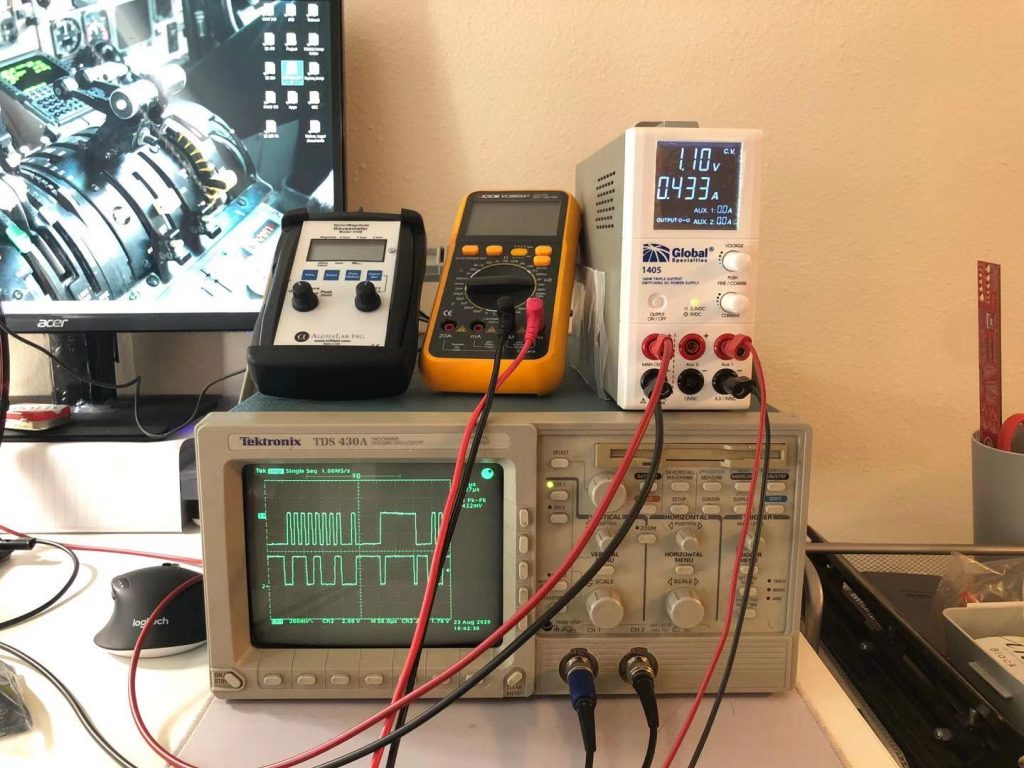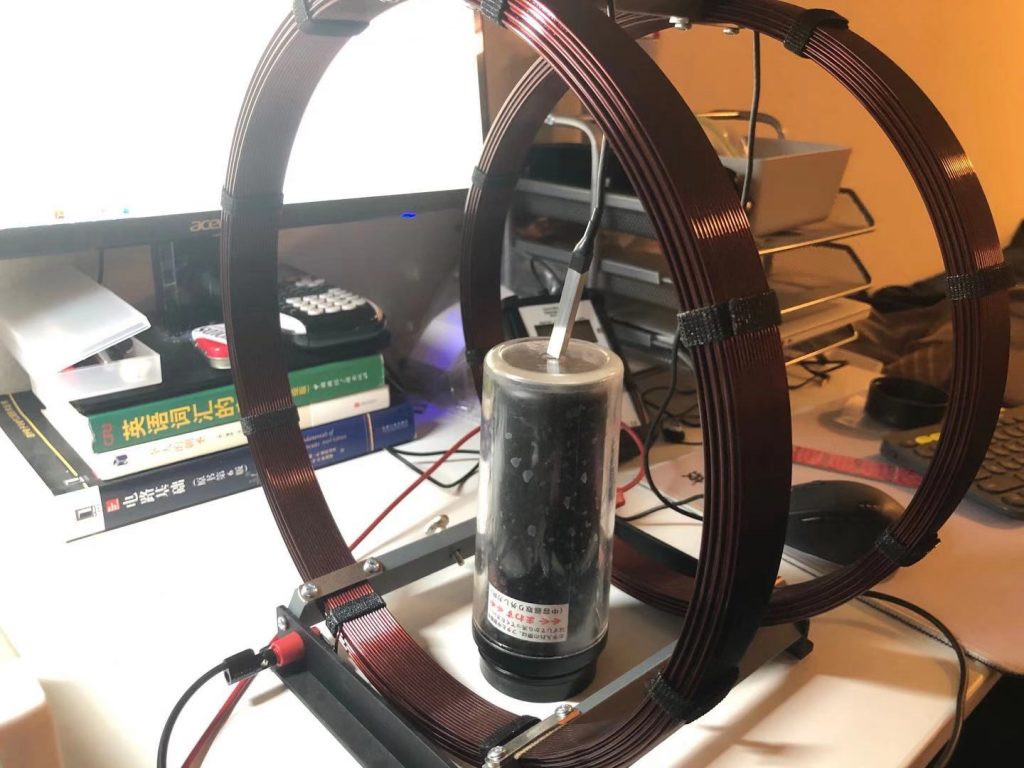Due to the COVID-19 pandemic, my school is forced to move to an (almost) all-online platform, including my research. Even though I live only five minutes from the campus, having access to the lab is nonetheless impossible it is often reserved for graduate/PhD students.
Fortunately, I have accumulated a wide range of equipment long before the lockdown because of my hobby of tinkering. Prof. Monge, my advisor, was also very nice to send me some extra hardware from the lab (since he has the access to it – he’s the boss right?). Nonetheless, I don’t have the luxury of having 6GHz real time oscillope or VNA at my disposal since they are worth hundreds of thousands of dollar. My testing equipment is just okay at best. I have a Tektronix “digitizing” oscilloscope – with an CRT screen and a floppy disk drive, a signal generator I got it from Alibaba for 20 bucks, a multimeter, and a soldering iron set. Shown below is a photo of my home workbench. The gaussmeter, power supply and the coil are from the lab.

On top of missing all the fancy testing equipment at the lab, I also suffered from distraction when trying to do research at home. I can find myself wander off playing guitar of watching Youtube (especially addicting when you have ad-free Youtube Premium) at any moment. I can control what I bring at the lab to keep myself from getting distracted. Since now I work from home, I have everything at my disposal, which is pretty confy as everything is within my reach. However, this a double-edged sword for productivity and efficiency.
Working under limiting hardware is also a rewarding experience. It’s like a hybrid of researching and tinkering. Think about it, research is to make something new by using any existing technlolgy – no matter how advanced it ts – simulation softwares, test equipment, fabrication facilities, etc. Tinkering, on the other hand, is to work up something with limited resources. It doesn’t have to be groundbreaking or completely new. The performance of the product doesn’t need to be state of the art. Tinkering is the “realizable” product that you can make with the material at hand. You can see from the picture below that I have to us my waterbottle as a platform for magnetic field measurement. Researching with a tinkering mind works pretty good in quarantine – you have to work with limited hardware and support. Does this mean diminished efficiency? Probably yes, but it also means thinking out of the box in terms of conducting the research – you just cannot copy the procedures from a textbook.

Below is a link to a short video of me interviewed by USC’s EE department about researching at home. Hope you guys like it.